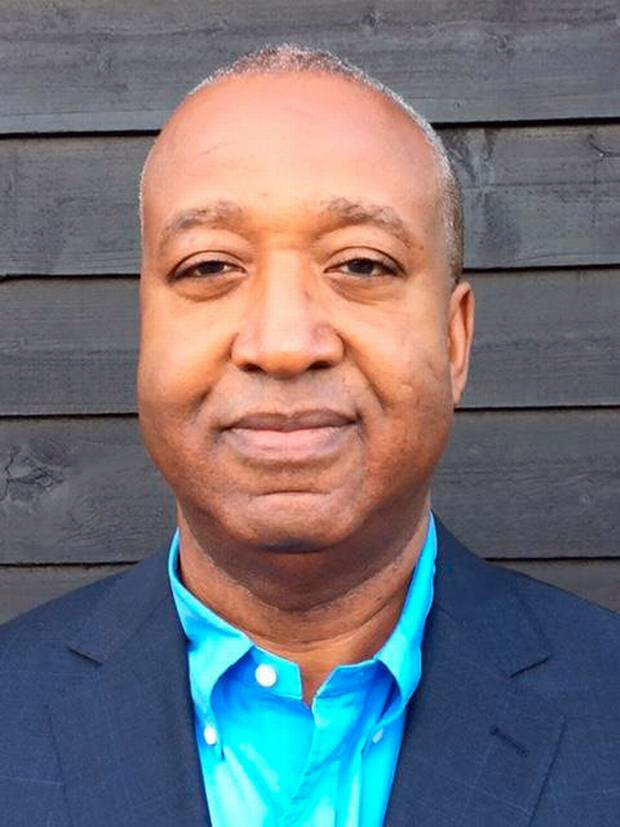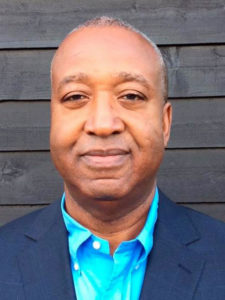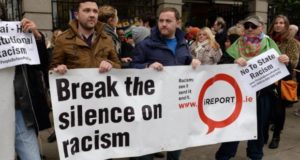
Our day of reckoning

That’s our schtick these days. We’ve given up on being the world’s best drinkers, the Czechs are running away with that, and we can only trade on our dead poets for so long, so we’ve had to come up with something else, a defining trait which doesn’t involve a pint of the black stuff or a maudlin tale about a sheep getting stuck in the bog.
Our loveliness, our all-round geniality, that’s what we want to be known for nowadays. Sure, we’re not bad at the oul’ Information Technology, and we have a gay Taoiseach, but neither of those are as exciting as being inventors, and best exponents, of, the almighty craic.
And so, we put a plan into action. We sent thousands of our finest young men out to Europe to follow one of our worst ever football teams with some strict instructions: Be nice, be funny, and record it all. That worked wonderfully, they even gave us a medal as proof of our soundness. Refusing to rest on our laurels, we sent more off to foreign lands, promising them that, so long as they danced and jigged their way round North America, laughing and joking as they went, someday, maybe in a few decades, we’d have jobs for them.
This, allied with a concerted, sustained social media campaign reminding everyone how great we are, all day, every day, has enabled us to ascend to the throne unchallenged, no-one, not even those fun-loving South Americans, able to halt our progress.
But here’s what they don’t tell you, here’s the dirty little secret that we don’t want anyone knowing about: Yes, we can be a right craic when we want to be, but we’re also a little bit racist, a tad xenophobic.
It’s not everyone and it’s not all the time. But it’s there and it can’t be denied.
It was certainly there when Derek Burnett sat down for dinner at a Limerick restaurant last month. Mr Burnett (61), who lives in the UK and is of African descent, was dining alone at what he described as a “quite upmarket” restaurant in the city centre when he became aware of a group of individuals at an adjoining table. The individuals in question, five men in their fifties and sixties, had taken issue with the colour of Mr Burnett’s skin and sought to let him know, in no uncertain terms, how much his presence irked them.

Mr Burnett was “loudly and aggressively racially abused” by these men, who “proudly proclaimed how they hated ‘niggers’ and how they would like to ‘take a baseball bat to everyone of them no matter whether men, women or children’.”
This was in Limerick, in 2018, not the Deep South of America at the turn of the twentieth century.
Although shaken by the incident, describing it as “deeply disturbing” and “immensely debilitating”, Mr Burnett was quick to point out that a fellow diner did come to his side to offer her support and admonish the men who had racially abused him. Furthermore, he has stated that this experience, and two previous, similar incidences, will not deter him from visiting Ireland again.
Some of you will no doubt be shocked by this story, scarcely able to comprehend how such a thing could occur in this day and age. Yet if you were to speak to any ethnic minority living in any part of this country, they would have similar stories to tell.
The difference is they’ve learned to live with it, accepted it as part of life in Ireland, something they’re just going to have to put with if they want to get by. It’s taken an outsider, someone visiting on business, to highlight the issue. If Derek Burnett lived locally, if he knew that come tomorrow, come next week, next month, he would still be here, walking among us, among a sea of white faces, would he have gone public with his story? I highly doubt it.
He would have known better than to draw attention to himself, to cause a fuss. Best to keep the head down and say nothing, hope that next time it happens it’s just words and not anything worse.
That’s the reality for the people we deem ‘foreigners’ in this country, they must endure a barely concealed resentment which occasionally, perhaps often, spills over into downright enmity. And it’s telling that the people in this particular episode were of a certain age, that they were old enough, and bold enough, to know better.
I’m loathe to generalise here, to separate Irish society into two groups, but by and large this issue with race is confined to our older citizens, to those who grew up in a country where the only black people were Paul McGrath and Phil Lynott. Not every person under the age of thirty is an open-minded, welcoming individual who chooses to judge someone on the content of their character rather than the colour of their skin. But, broadly speaking, the younger the person, the more normal it is to see, and spend time with, those of a different ethnicity.

That’s certainly a possibility. But in order for that to happen we must use Derek Burnett’s experience to empower those currently living under a shroud in our towns, cities and villages. We’ve got an opportunity here, a chance to cleanse ourselves, to eradicate something which, no matter how much we pretend it doesn’t exist, is holding us back as a nation.
It may seem like a trite comparison, maybe even a lazy one, but I can’t help but notice the parallels between this and the #MeToo movement.
How through sharing her story, denouncing the male privilege so prevalent in Hollywood, one woman encouraged first dozens, then thousands, then millions, to share similar tales, and how, as a result, men the world over have been forced to reassess their actions, to look at their behaviour, their attitudes towards women and ask whether they have acted inappropriately at any point in their lives.
If Mr Burnett’s bravery, his refusal to bow down to the bullies, could encourage just one other person, anywhere in the country, to recount their ordeal, their experiences of racism, then maybe more would follow, maybe we could finally look this problem in the eye and have our own day of reckoning. It wouldn’t be pleasant, we might even lose our tag as world’s best people in the process, but long-term it would benefit everyone, regardless of their colour.
Breast milk, better than any other milk on the market

Thus, one can only surmise that, up until now, we have been decidedly unfriendly when confronted by this natural act, that we’ve recoiled in horror at the sight of a hungry bairn having its breakfast, appalled that he or she should be allowed such ready access to its fodder while we’re still waiting for the barista to bring our coffee.
Of course the real issue here isn’t the baby and its need for sustenance. No, it’s the mammy, and the exposure of her flesh. Some people just can’t handle the sight of a bare breast in public, they find it unbecoming, a little off-putting.
Which is a real problem. Because Ireland has one of the lowest rates of breastfeeding in the world.
You might not think that’s a big deal, that milk is milk wherever you get it. But you’d be wrong.
A study carried out by researchers at Queen’s University Belfast has found that adults who were breastfed as children have a 10% higher household income by the age of 50 than those who were not. To me this infers that there’s some sort of magic ingredient in breast-milk, a special intangible element which bestows extra wisdom and strength upon all who receive it.
It also explains why so many people appear to have an issue with women breastfeeding in public; they’re worried that these suckling superkids are going to do better in life than their own formula-fed offspring.










